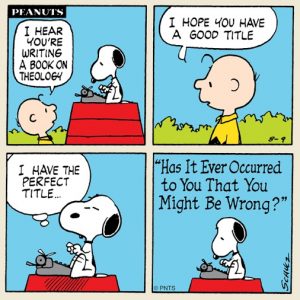 I have a problem with the word “love.” It can mean so many things that I consider it a relatively unclear term. “I love you” and “I love you too” gets repeated over and over again in a ritual that couples execute on a regular basis. But what do they mean?
I have a problem with the word “love.” It can mean so many things that I consider it a relatively unclear term. “I love you” and “I love you too” gets repeated over and over again in a ritual that couples execute on a regular basis. But what do they mean?
I’ve coached more than one client into devising ways to be clearer about their sentiment than tossing out the cavalier “I love you” to their significant others.
How can we be clearer? Love is… well… love, right?
What kinds of sentiments do we wrap up in the blanket term “love”?
Respect, honor, appreciate, can’t live without, see your stunning beauty, care deeply for, consider you with limitless affection, adore, am passion about, value, have fun with, am happy with, am comfortable with… the list of sentiments is endless.
Instead of trundling out the worn-out “I love you,” why not try to clearly describe your sentiment? “I appreciate all you do for me,” or “Damn! You look like a million bucks tonight!” Maybe “You know, my life wouldn’t be half what it is without you in it.” “Thanks for all the wonderful things you do for our life.”
My point is that I see “love” as a catchall. In the “love you, love you too” exchange, two knowers/judgers are exchanging pleasantries in a repeated ritual that simply satisfies the K/J responsibilities. But it doesn’t portray the actual meaning of the moment. Using clearer language (internally answering “What do I mean when I say ‘I love you’ in this moment?”) transmits an accurate statement of my meaning and opens the door for an accurate exchange of meaning (and potentially emotion). It answers why.
Don’t believe me? At your next opportunity, try saying to your significant other “I truly appreciate what you do for my life” and note the reaction—the conversation that ensues.
Now let’s flip to the other end of the spectrum. The word of the day in American media is “hate.” There are “hate crimes” and “hate groups.” Literally every news broadcast today has a “hate-themed” story.
But what do they mean by the word “hate”? What words might they have used instead of that other catchall?
Are they describing fear? Ugliness? Distrust? Antagonism? Scorn? Resentment? Distaste?
I’m pretty sure the news media isn’t very clear about their use of the word. Or governments, for that matter, when they accuse citizens of hate crimes.
Shouldn’t they explain “hate”?
“They hate African Americans because…?” Do they fear them? Not trust them? Not know them?
“I hate the New York Mets.” Why? Do I fear them? Dislike them based on previous seasons? Think their first baseman is a cheater? Why not state that in lieu of blanketing the situation with the catchall?
My wife will frequently say that she hates carrots. I have heard her explain that she tastes all carrots as bitter and that she doesn’t seem to appreciate the flavor as others do. Now, no amount of conversation will change this. But I can’t imagine the number of people who challenge her with “I can’t believe that! Carrots are so sweet and tasty.” Explaining the cause (which she has done from time to time in response to the universal “sweet and tasty” comeback) clarifies the situation and gets carrots off her plate.
What is the foundation of the particular hate? Just like a more descriptive explanation of love expands understanding and promotes conversation, a more descriptive explanation of hate can do the same thing.
If dialog is to be conducted (and not just ending a conversation with a loud, verbal punch in the nose), “I hate you” will not continue or develop that dialog. At best it will yield “I hate you too.” Sound familiar?
I believe “I fear you because you’re bigger than me” is clearer and has the possibility of leading to productive dialog.
Where do you use the word “love”?
Where do you use the word “hate”?
If improving relationships is on your wish list this year, where can you be clearer? Words matter.



